City guides


Louisville Travel Guide
Louisville is world-renowned for being home to America's most exciting two minutes of sport each year: the Kentucky Derby. It graces the famed Churchill Downs racetrack annually in early May, bringing with it a dazzling display of thoroughbred racehorses and a deafening soundtrack of thundering hooves.
However, it's not all this lively city on the banks of the Ohio River has to offer. Louisville also offers scores of fine restaurants and a diverse arts community, boasting some of America's most beautiful parks and renowned art and science museums.
It's definitely a city of good caste, with more than 2,500 restaurants serving an astounding variety of cuisines, ranging from sleepy cafes and coffee houses to ethnic restaurants and gourmet palaces.
The city is big on the national sporting map, too, being the home of the famed Louisville Slugger, and baseball fans flock to the downtown museum dedicated to the 'Official Bat of Major League Baseball'.
This, together with some exciting attractions such as a restored old sternwheeler river boat, an excellent zoo and a thrilling amusement park, makes Louisville a perfect family holiday destination, set in the very heart of America.
Things to do in Louisville
While Churchill Downs and the Kentucky Derby are the main entries on the traditional bucketlist, visitors will discover all manner of attractions in this pretty southern city. Louisville has a long history, most prevalent in the old architecture built throughout.
It is home to the third largest National Preservation District, and largest Victorian district, in the United States. Scenic areas worth exploring include St James Court and Belgravia Court, Main and Market Streets, the Cherokee Triangle, and Butchertown.
Downtown has highlights within walking distance, including the art galleries of Market Street, the Speed Art Musem, the Kentucky Center for the Performing Arts, the Louisville Slugger Museum, the Kentucky Science Center, Frazier Historical Arms Museum, Kentucky Museum of Art and Craft, Kentucky Derby Museum, and the Muhammad Ali Center. Many of these are located in a cluster on Main Street.
Besides the iconic horse race, the Kentucky Derby Festival presents air shows, balloon and steamboat races, and marathons. The St James Court Art show is a fun local event too, held in a genteel neighbourhood of stately Victorian homes.
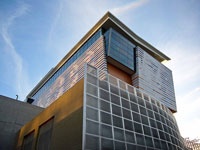
Muhammad Ali Center
Fans of legendary boxer Muhammad Ali can see and experience all aspects of the life of the man dubbed 'The Greatest' at this huge multi-media, interactive exhibition centre, which features theatres and interactive stations. Ali's story, including his boxing career, global humanitarianism, and societal and religious convictions, is presented in thematic displays, according to the six core values he has encompassed: confidence, conviction, dedication, respect, spirituality and giving. The inspirational centre also includes displays of memorabilia, a retail store, and cafe.
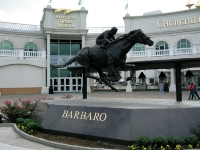
Kentucky Derby Museum
Even those who aren't horse racing fans can experience the thrill of the sport at the museum and through tours offered at Churchill Downs. Established in 1874, it's one of the world's oldest and most famous tracks, and hosts the annual renowned Kentucky Derby. The Museum contains exhibits that bring the pageantry and excitement of the Derby to life, including high-tech computerised hands-on displays and video graphics. A video entitled 'The Greatest Race' shows on a 360-degree screen every half hour from 9am to 4:30pm and from 12:30pm on Sundays. Museum tour guides take groups of visitors to see the Churchill Downs' stable and infield areas, as well as through the historic Edwardian grandstand, finish line, and winners' circle.
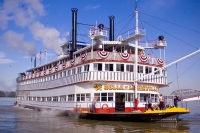
Belle of Louisville
The Belle of Louisville is America's oldest still-serving sternwheeler riverboat, plying the Ohio River from Louisville's waterfront to give visitors memorable sunset cruises, sightseeing excursions and Saturday night party cruises. Powered by two steam engines and boasting 32 whistles, the historic boat was commissioned in 1914 and was originally named the Idlewild. She served as a packet boat for many years, carrying passengers and freight on America's inland waters. In 1962 she was purchased by the Jefferson County authorities and refurbished, being declared a National Historic Landmark. Now, public sightseeing cruises depart from the 4th Street Wharf in Louisville.
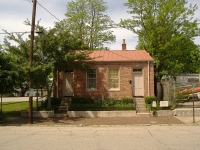
Thomas Edison House
Thomas Edison, inventor of the incandescent electric light bulb, lived in the house on East Washington Street in 1866 when he was only 19 years old and had yet to receive acclaim for his many inventions. When Edison lived in Louisville, he worked for the Western Union as a telegraph operator on Second and West Main Street, a few blocks from the house. Today, the simple cottage, built around 1850, has been restored as a museum housing interesting artefacts. These artefacts in Thomas Edison House include things such as cylinder and disc phonographs, a kinetoscope, the first home motion picture projector, numerous versions of the light bulb and other creations patented by the famous inventor.
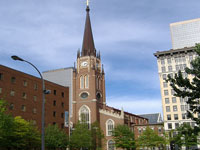
Cathedral of the Assumption
The Cathedral of the Assumption is the fourth oldest public building in Louisville as well as the third oldest Catholic Cathedral in the United States in continuous use. Designed in the neo-Gothic style by William Keeley and Isaiah Rogers, the Cathedral was completed in 1852. The steeple rises 287 feet (84m) above the Louisville skyline, and upon its completion, was North America's tallest spire. The chancel window is one of the oldest surviving examples of hand-painted stained glass in the country. The Cathedral of the Assumption is listed on the National Register of Historic Places and is an active, urban parish with 1,500 registered families. Audio tours are available and docents conduct guided tours by appointment only.
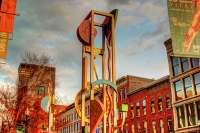
Kentucky Science Center
Founded in 1871 as a natural history collection, the Kentucky Science Center in historic West Main Street has experienced more than a century of growth to become Kentucky's largest hands-on science centre, and is visited by more than 550,000 people each year. A highlight of the centre is a permanent exhibit known as The World Around Us, which features interactive stations that challenge visitors of all ages to make use of their creativity and problem-solving skills. The centre also has a four-story digital movie theatre, a gift shop and restaurant. The Science Center isn't just for kids, as it provides lectures and events for adults after hours.
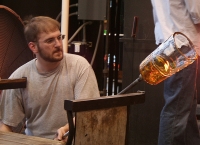
Louisville Glassworks
Louisville Glassworks is America's first complete centre dedicated to the art of glass, from architectural glassworks to the finest glass jewellery and ornaments. Located in Louisville on the corner of 9th and Market Streets in the historic Snead Manufacturing Building, visitors can watch glassblowers, flameworkers, cutters and designers at work, creating glass art in the open air and studios. Renowned resident glassmakers are Mark Payton and Brook White, but Louisville Glassworks also plays host to visiting glass-smiths. Visitors have the opportunity to work one-to-one with an artist to create their own glass art. This is by appointment only. Guided tours are also available.
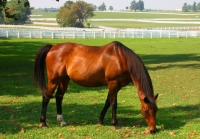
Kentucky Horse Park
The only theme park in the world dedicated to man's relationship with the horse, the Kentucky Horse Park in Lexington covers 1,200 acres in Kentucky's famous Bluegrass region. Visits begin with a 12-minute film called, Rein of Nobility, followed by a tour of the vast and comprehensive International Museum of the Horse. Guests can also wander through a self-guided farm tour, watching the farrier at work and admiring the tack shop, before attending a half-hour parade in the show ring, which highlights the characteristics of some of the park's 40 different breeds of horses. In the Hall of Champions, legendary thoroughbreds are presented for viewing, and visitors can also enjoy a carriage or horseback ride around the park's extensive show facilities. The presentations are held only between March and October.
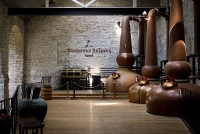
Woodford Reserve Distillery
Besides horses, Kentucky is famous for its bourbon history and many distilleries are open to the public. However, the oldest still operating is the Woodford Reserve Distillery, which is nestled between lush horse farms in Woodford County on McCracken Pike. Bourbon was first distilled here in 1812, when it was known as the Labrot and Graham Distillery. The site of the beautiful limestone buildings is a National Historic Landmark, restored to its original condition. It's the only bourbon distillery still using copper pot stills, the traditional method of distillation. A visitor's centre provides displays and videos on the history of bourbon, and guests can watch how bourbon is distilled in the traditional manner. The distillery offers several tours and tastings.
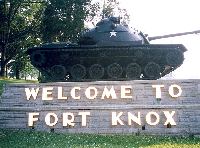
Fort Knox
This US Army fort, located an hour south of Louisville, is world-famous as the home of America's largest stockpile of gold bullion. However, the repository is closed to visitors. A popular attraction is the General George Patton Museum of Leadership. It has exhibitions of US Army artefacts going back to 1775. Adjacent to the museum is Keyes Park, offering pleasant picnic areas and a playground for children to run around in. The museum store sells a whole array of gifts and mementos.
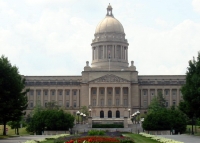
Frankfort
The capital city of Kentucky, history-rich Frankfort is situated about 50 miles (80km) east of Louisville, about 50 minutes drive from Louisville International Airport. It boasts a vast array of architectural styles, famous landmarks, museums and enjoyable shopping precincts. Among the interesting attractions in the city is the Old State Capitol, a Greek Revival building dating from 1830 with a unique self-supporting staircase held together by precision and pressure. Other architectural sites include the Frank Lloyd Wright designed Zeigler house, dating from 1910, and the Switzer Covered Bridge, a beautifully restored Howe Trussed bridge dating back to 1855 that provides a lovely place for a picnic. Besides numerous historic houses and buildings, Frankfort boasts a fascinating History Center, historic sites, war memorials and scenic wildlife reserves. Daniel Boone, the famous frontiersman, is buried in Frankfort Cemetery, overlooking the city. The Buffalo Trace Distillery has been operating for over two centuries, and offers guided tours. The city also offers many active pursuits, including golf, horseback riding, canoeing, and hiking.
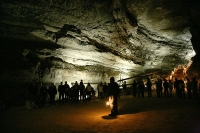
Mammoth Cave
The Mammoth Cave National Park near Edmonson in south-central Kentucky boasts the longest known cave system in the world, with 405 miles (652km) of caves and passages having so far been explored. According to experts, there's 'no end in sight'. Officially dedicated as a national park in 1941, its cave system and scenic valleys of the Green and Nolin Rivers remain preserved. The park offers camping, cave tours, hiking trails, hotel accommodation, canoeing, and horseback riding. There are a variety of expeditions on offer, with varying levels of difficulty and sightseeing options, run to different schedules. Visitors should request a brochure and book in advance, as tours cannot be booked on the day.
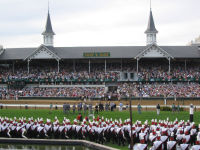
Churchill Downs
The home of the most famous horse race in America, Churchill Downs is full of tradition and amazing stories. It opened in 1875, and has hosted the Kentucky Derby ever since. The track also hosts the Breeders' Cup. Races are run from May to July, and October to November, and visitors to Churchill Downs can see live races in addition to learning about past winners in the Kentucky Derby Museum, which is open year round.
Getting Around
Louisville is regarded as one of the most accessible cities in the United States, having excellent road and rail links in addition to its international airport. Once in the city, it is best to make use of the frequent and efficient bus and trolley services.
Taxis are also easy to find, and some hotels run their own complimentary shuttle services between the airport, the downtown area and other landmarks. Louisville has a strong cycling tradition and there are several on-road bike lanes downtown. Many visitors prefer to hire a car, which makes getting around the city and the surrounding areas easy. Rideshare services include Uber and Lyft.
Louisville Climate and Weather
Louisville's humid subtropical climate is temperate and seasonal. Summers (June to August) are hot with cool evenings, so travellers should bring along a light jacket or coat. Spring and summer are the wettest seasons, although rainfall is fairly constant all year round.
Snow usually falls in winter, allowing for winter sports. Winter temperatures (December to February) range from 27F (-3C) to 43F (6C); and average summer temperatures vary between 66F (19C) and 89F (32C).
United States of America travel info
Electricity
The electrical current is 120 volts, 60Hz. Plugs are mainly the type with two flat pins, though three-pin plugs (two flat parallel pins and a rounded pin) are also widely used. European appliances without dual-voltage capabilities will require an adapter.
Language
English is the most common language spoken but Spanish is often heard in the south-western states.
Money
The official currency is the US Dollar (USD), which is divided into 100 cents. Only major banks exchange foreign currency. ATMs are widespread and credit cards are widely accepted; Apple Pay and Google Pay are very popular. Banking hours are Monday to Friday 9am to 3pm.
Tipping
A 15 percent tip is expected by taxi drivers, bartenders, hairdressers and waiters, but travellers shouldn't tip in fast-food or self-service restaurants. In expensive restaurants or for large parties, the tip should be 20 percent of the bill. It's normal to tip staff such as valets and porters in hotels; this is discretionary, although a minimum of $5 is expected. Most services are customarily tipped if the service is good.
Health
There are no specific health risks associated with travel within the USA. Medical facilities are excellent, but expensive. Only emergencies are treated without prior payment and treatment can be refused without evidence of insurance or proof of funds. Good medical insurance is essential.
Safety
Travel within the United States is generally trouble-free, though travellers should be aware that the US shares with the rest of the world an increased threat from terrorist incidents. Security has been heightened, particularly at airports. Restrictions on hand luggage apply and travellers are advised to check on the latest situation with airlines in advance. Travellers should also be alert to the dangers of car and street crime in cities and should use common sense and take basic precautions. Hurricanes are common between June and November, putting the southern USA, including the Gulf Coast and the eastern US at risk. There's a risk of wildfires in many dry areas in the US, particularly on the West Coast from March to November.
Local customs
Laws vary from state to state, including speed limit, fines and punishment. The age at which alcohol may be legally bought and consumed is 21 years.
Doing business
In such a large country, filled with so many diverse groups, business practices may differ according to each state, though rarely to any large degree. The East Coast is traditionally more formal than the West Coast, though in states such as California, dress code and conservative appearance are as common as they would be in New York. Punctuality is important throughout the country and it's considered rude to be late for a meeting. Gift-giving is uncommon as it may be construed as bribery. Appropriate titles (Mr, Mrs, Ms) are used upon introduction and until otherwise stated. Americans favour politeness and greetings of 'Hello' and 'How are you?' are often expressed with sincerity. Business hours may vary in each state, but an 8am start and 5pm finish Monday to Friday is the most common with an hour over lunch.
Status and age are not necessarily indicative of seniority, nor do they carry much weight in themselves. Those doing business in the States should be mindful of this fact; foreigners should never make assumptions about someone's position or rank. Best practice is to be respectful to all parties. That said, the US upholds a hierarchal business structure in which 'the boss' is the ultimate decision-maker. Senior leaders have the power of the last word, and can go against the grain just as easily as they can follow popular opinion. Foreigners should concentrate on winning over this individual, even if the greater group seems unsupportive. Americans value a direct style of communication. In this fast-paced, consumer culture 'time is money', and small-talk is viewed as unnecessary and wasteful. It's best for foreigners to get to the point quickly, speak about issues in a frank and open manner, and to avoid taking offence if someone questions or challenges them outright.
Duty free
Travellers to the United States who are returning residents of the country do not have to pay duty on articles purchased abroad to the value of $800 provided their stay was longer than 48 hours and their duty-free allowance was not used in the 30-day period prior. For passengers arriving from Samoa, Guam and the U.S. Virgin Islands, a duty-free allowance of $1,600 is allowed. The following items are included in this: 50 cigarettes and 10 cigars and 150 millilitres (5 fl. oz.) of alcoholic beverages or 150 millilitres (5 fl. oz.) of perfume containing alcohol. Restrictions may apply to goods from Cuba, Iran, North Korea, Burma (Myanmar), Angola, Liberia and Sudan. It is prohibited to import Cuban cigars from any country.
Travellers to the United States who are non-residents do not have to pay duty on the following items: 50 cigars or 200 cigarettes and gifts to the value of $100 provided their stay in the USA is not less than 72 hours and that the allowance has not been used in the preceding six-month period.
Prohibited items for residents and non-residents include meat or meat products, poultry, narcotics, absinthe, plants, seeds, vegetables, fruits, soil, live insects and other living plants or animal pests. Fish is prohibited unless it carries disease-free certification. Wildlife and animals or their by-products carry restrictions. Dairy products and eggs from specified countries are not allowed. Firearms and ammunition are not allowed without the necessary license and permit.
Communications
The international country dialling code for the United States is +1. Mobile networks cover most of the country, especially all urban areas; travellers can purchase local prepaid SIM cards for unlocked phones or use eSIMs if their cellular providers support it on their networks. WiFi is widely available.
Passport & Visa
It is highly recommended that travellers' passports have at least six months' validity remaining after the intended date of departure from them travel destination. A visa is required for short visits unless travellers qualify for entry under the Visa Waiver Program.
The Visa Waiver Program (VWP) enables citizens of certain countries to travel to the US for a stay of up to 90 days without a visa. Visitors under the VWP need a valid Electronic System for Travel Authorization (ESTA), which allows the US government to screen all visitors before travel. Visitors entering the country under the VWP must have a machine-readable passport (MRP) that has a barcode on the photo page. Travellers under the VWP must have passports that include biometrics if they wish to enter the country without a visa, which means that passports must contain unique personal data such as fingerprints or iris details. All passports must contain a digital photo image in order to travel visa-free. All visitors to the USA have a photograph and two fingerprints taken by an inkless scanner on arrival, including those travelling visa-free under the VWP.
As part of the Western Hemisphere Travel Initiative (WHTI), all travellers travelling between the United States and Canada, Mexico, Bermuda, and the Caribbean region are required to present a passport or other valid travel document to enter or re-enter the United States. If departing from the USA, a valid passport is required by immigration authorities. Immigration officials often apply different rules to those stated by travel agents and official sources.
Entry requirements
US citizens require passports.
UK nationals require a passport valid for duration of stay. Most passport holders can get an Electronic System for Travel Authorisation (ESTA) through the Visa Waiver Programme, which allows travel to the US for up to 90 days. The VWP includes tourism, certain types of business visit and transit to another country.
The most important requirement on entering the U.S. is providing proof of Canadian citizenship. A valid Canadian passport is the best document to prove Canadian citizenship and the right to return to Canada. However, several other documents can serve, depending on the mode of transport. Generally, Canadian citizens do not require visitor, business, transit or other visas to enter the United States from Canada, though there are some exceptions.
Passports must be valid for the period of intended stay. If visiting the US for fewer than 90 days, Australian nationals may be eligible to apply for an Electronic System for Travel Authorization (ESTA), and enter under the Visa Waiver Program (VWP).
South Africans must hold a passport valid for duration of stay. A visa is required.
Passports must be valid for duration of stay. Irish nationals can get an Electronic System for Travel Authorisation (ESTA) under the Visa Waiver Programme for entry into the United States.
Passports must be valid for duration of stay. New Zealand nationals can get an Electronic System for Travel Authorisation (ESTA) under the Visa Waiver Programme for entry into the United States.
Useful contacts
United States Tourist Office: www.usatourist.com
911 (General)Embassies / consulates in other countries
United States Embassy, London, United Kingdom: +44 20 7499 9000.
United States Embassy, Ottawa, Canada: +1 613 688 5335.
United States Embassy, Canberra, Australia: +61 2 6214 5600.
United States Embassy, Pretoria, South Africa: +27 12 431 4000.
United States Embassy, Dublin, Ireland: +353 1 668 8777.
United States Embassy, Wellington, New Zealand: +64 4 462 6000.
Embassies / consulates in United States of America
British Embassy, Washington DC: +1 202 588 6500.
Canadian Embassy, Washington DC: +1 202 682 1740.
Australian Embassy, Washington DC: +1 202 797 3000.
South African Embassy, Washington DC: +1 202 232 4400.
Irish Embassy, Washington DC: +1 202 462 3939.
New Zealand Embassy, Washington DC: +1 202 328 4800.


